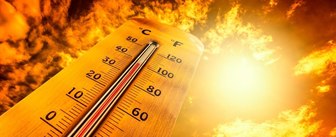A majority of Americans say the United States should generously help victims of major natural disasters, even when those disasters happen in foreign countries. A new poll by the Economist/YouGov found this support for foreign humanitarian disaster aid crosses demographic and political divisions. But Americans show less consensus on the question of whether climate change is increasing the frequency of natural disasters.
In the aftermath of a deadly earthquake in Morocco and flooding after a dam collapse in Libya, nearly two-thirds (65%) of Americans say that in general the U.S. should provide foreign disaster aid, and just 14% are opposed, with 21% unsure.
This support holds in each major political group. Democrats are more likely to support foreign humanitarian aid than Republicans or Independents, but in all three groups, supporters of aid outnumber opponents by a margin of greater than three to one.
Overseas aid is less popular among Americans than supporting victims of domestic disasters, but still has majority support for two specific recent events. The vast majority of Americans (85%) support humanitarian aid for victims of recent wildfires in Hawaii, compared to smaller majorities supporting aid for victims of the Moroccan earthquake (59%) or Libyan flooding (54%).
For each of the three recent disasters polled about, among Democrats, Independents, and Republicans support for providing humanitarian aid is greater than opposition.
Majorities of Americans think that major natural disasters are becoming more frequent in recent years, with 38% seeing major increases, 25% saying they've increased "a little," and 27% saying disaster frequency has stayed the same (24%) or fallen (4%).
Americans are somewhat more divided about whether climate change is driving an increase in natural disasters. Overall, 36% say disasters are increasing and climate change is mostly or entirely responsible. This includes a majority of Democrats.
Another 23% of Americans say natural disasters are increasing, but that climate change is only somewhat responsible (17%) or not at all responsible (6%).
Just over 27% say natural disasters are not becoming more frequent, and 10% are unsure.
See the toplines and crosstabs from the Economist/YouGov poll conducted on September 17 - 19, 2023 among 1,500 U.S. adult citizens.
Methodology: Respondents were selected from YouGov’s opt-in panel using sample matching. A random sample (stratified by gender, age, race, education, geographic region, and voter registration) was selected from the 2019 American Community Survey. The sample was weighted according to gender, age, race, education, 2020 election turnout and presidential vote, baseline party identification, and current voter registration status. Demographic weighting targets come from the 2019 American Community Survey. Baseline party identification is the respondent’s most recent answer given prior to November 1, 2022, and is weighted to the estimated distribution at that time (33% Democratic, 31% Republican). The margin of error for the overall sample is approximately 3%.
Image: Getty Images (Carl Court)










